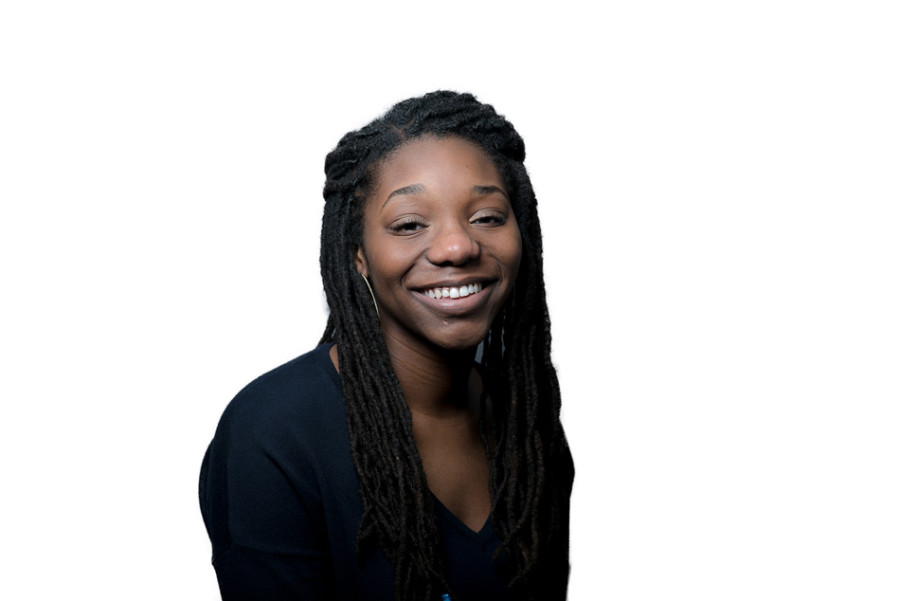Chase: Minority students need to step outside their comfort zones to foster progress
March 6, 2015
Earlier in the quarter, I was finishing up in The Daily office and was about to head out for the night when a question crossed my mind to ask one of the editors.
“Am I the only black columnist for The Daily?”
The answer I received was disappointing but not surprising.
“Now that I think of it, you might be the only African-American columnist who writes regularly.”
Though I expected this answer, I left the office pondering what the editor had said. Obviously, the black population at Northwestern is not huge – about 5 percent, give or take — and we only average about 10 students per class in Medill, but there must be more black students that want to write for a campus publication like The Daily Northwestern, right?
It would be absurd to believe there are only one or two black students with articulate opinions on this campus. NU’s minority population clearly has opinions and strong ones at that. But what are we doing with these opinions and where do we express them?
We are having important dialogues in places where we feel safe.
These safe places, however, are not typically at The Daily Northwestern or the other large campus publications that have the most prominent — but not necessarily the most important — voices on campus. Instead, they are often at campus publications with a smaller readership and niche interest, like Pulse Magazine. (Full disclosure: I am the Opinion Editor at Pulse Magazine.) Choosing to write for smaller publications is not a problem; you have more fluidity with what you talk about and you can spend less time explaining certain terms and more time discussing implications. But there is still an issue with these publications and student organizations. Because of their smaller and more niche readership, they are often preaching to the choir.
It is way too easy to go to the Black House and talk transparently about the problematic statement a white classmate mentioned in lecture. It is all too simple to get in your circle of Palestinian friends and speak about why NUDivest was a necessary and successful movement. But who is enlightened by these conversations? Who is learning new ways of thinking about the world and the experiences of students on campus?
This comfort level is dangerous. We go into our corners and have conversations in private, reiterating and affirming our feelings with others we relate to. This is cathartic but not always constructive. Of course, it is not only black students who go to the Black House and it is not only South Asian students who participate in SASA events but the number of students participating in these cultural organizations and places is smaller than it has to be.
To foster progress throughout the whole NU community, minority students need to occupy more space in majority white organizations in larger numbers; a handful of black writers on The Daily staff is not enough — we have more stories to tell than one writer can handle. This is not to say that it is solely our job to educate others, but we do have some important things to say. We need to step outside of our safe corners and take a chance at being a voice and presence in different spaces that need more color. Putting yourself out there can be daunting but, never fear, I have some tips:
- There’s strength in numbers. Permeate these student organizations with a group of friends, it will heighten your comfort level and the impact you can have.
- Do not feel pressured to be the representative for your racial/ethnic group. Your presence is enough of a different perspective.
- Listen patiently and respond constructively. Part of your purpose in these groups is to make friends outside of your comfort zone so realize that their opinions are valid, though sometimes problematic.
To be clear, minority students have done amazing things within our student groups. We have hosted informational discussions and call-to-action seminars that appeal to a large portion of the student body. These accomplishments should not go unappreciated, but there is still more work to be done. I am aware of the distaste toward certain campus publications and student groups, but joining them does not mean that you are abandoning part of your identity; it means you are acting as a catalyst for improvement within these organizations.
Many of NU’s minority students are misrepresented, ignored or insulted by parts of student life at NU. We feel so irritated by certain publications that we do not even pay them any mind; we assume they will distort our narratives and then complain when they fulfill our expectations. What if we took more control of our own stories and experiences and offered a different perspective to the large readership of publications like The Daily? Our numbers are small but our impact could be huge if we left our comfort zones, occupied more space and forced conversations in more arenas.
Arielle Chase is a Medill sophomore. She can be reached at [email protected]. If you would like to respond publicly to this column, send a Letter to the Editor to [email protected].


